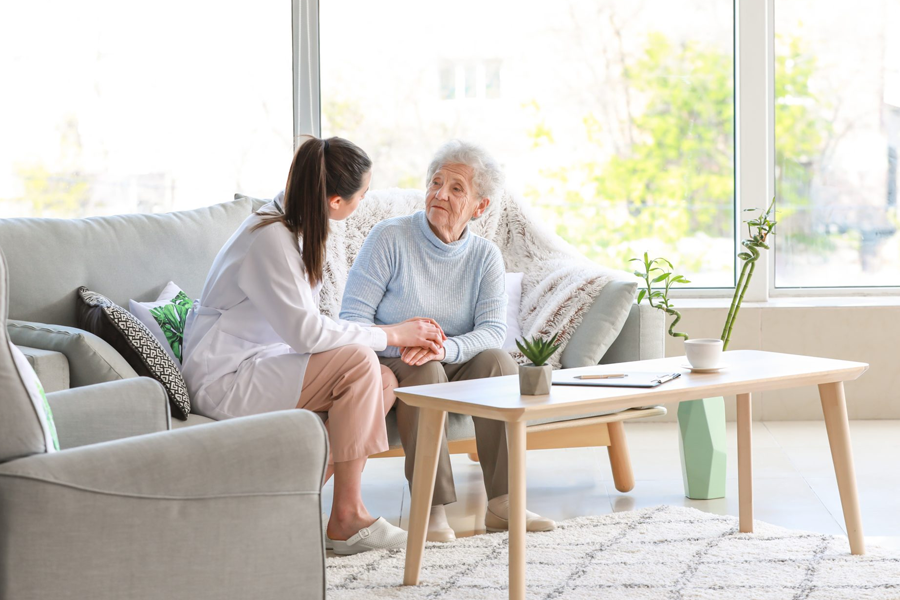Blog
Coping Strategies for Seniors Facing Loneliness After Spousal Loss

Losing a spouse is one of life’s most profound and painful experiences. For seniors, this loss can be especially overwhelming, disrupting daily routines, companionship, and the sense of purpose built over decades together. The grief that follows often leads to deep loneliness and emotional emptiness that can be difficult to navigate alone.
While there’s no simple way to ease the pain of losing a loved one, there are compassionate ways to cope and rediscover connection, comfort, and meaning over time. With patience, support, and gentle care, healing and peace are possible, even after such a great loss.
Understanding Grief and Loneliness in Seniors
Grieving the loss of a spouse is a natural, deeply personal process that affects every aspect of life, emotional, physical, and social. For seniors, this grief can be compounded by other life changes, such as retirement, declining health, or children living far away.
Many seniors describe loneliness after spousal loss as a “quiet emptiness.” It’s not only the absence of a person, but the absence of shared routines, conversations, laughter, and comfort.
Common feelings after loss may include:
- Deep sadness or hopelessness
- Difficulty sleeping or changes in appetite
- Fatigue or low motivation
- Forgetfulness or trouble concentrating
- Loss of interest in hobbies or social activities
- Feelings of isolation or anxiety about the future
It’s important to remember that everyone grieves differently. There’s no “right” way or timeline to process such a loss, but connection and compassion can make the journey a little lighter.
Why Loneliness Can Impact Health
Loneliness isn’t just an emotional experience, it can affect physical and mental well-being. Studies show that prolonged isolation in seniors may lead to higher risks of depression, cognitive decline, weakened immunity, and other health challenges.
That’s why social and emotional support are essential parts of healing. Staying connected to others, even in small ways, can help seniors regain a sense of stability, belonging, and hope.
Coping Strategies for Seniors Facing Loneliness
While grief cannot be rushed, there are healthy ways to cope with loneliness and begin rebuilding a fulfilling life after loss.
- Allow Yourself to Grieve
The first step toward healing is acknowledging the pain. Suppressing emotions can make recovery harder. It’s okay to cry, talk about your spouse, or revisit old memories. Grieving is not a sign of weakness; it’s a reflection of love.
- Stay Connected with Family and Friends
Isolation can intensify sadness. Even when it feels difficult, try to stay in touch with loved ones. Phone calls, video chats, or visits can offer comfort and remind you that you’re not alone.
Tip: Let family and friends know how they can help, whether it’s sharing meals, running errands, or simply listening.
- Consider Joining a Support Group
Talking with others who have gone through similar losses can be incredibly healing. Grief support groups, either in person or online, provide a safe space to share emotions, receive encouragement, and build new friendships.
- Create New Routines
When a long-time partner is gone, daily routines may feel empty. Try creating new habits that bring structure and purpose to your daysuch as morning walks, reading, gardening, or volunteering. Small, positive routines help replace loss with meaningful activity.
- Honor Your Loved One’s Memory
Keeping your spouse’s memory alive can bring peace and comfort. You might:
- Display cherished photos or keepsakes.
- Write in a journal about special memories.
- Cook their favorite meal or listen to songs you both loved.
- Celebrate their birthday or anniversary with family.
These gestures don’t replace loss; they help transform grief into gratitude for the time shared.
- Adopt a Pet or Care for a Living Thing
For some seniors, the companionship of a pet can bring tremendous comfort. Caring for a dog, cat, or even plants provides routine, affection, and a renewed sense of responsibility and love.
- Engage in Gentle Physical Activity
Exercise can help relieve stress, improve sleep, and boost mood. Activities like walking, stretching, yoga, or dancing provide both physical and emotional benefits, and may even connect seniors with new friends.
- Seek Emotional and Professional Support
If grief feels overwhelming, talking to a counselor, therapist, or spiritual advisor can help. Professional support provides guidance, reassurance, and tools for coping with complex emotions.
How Caregivers Can Help
For seniors facing loneliness after losing a spouse, compassionate caregiving can be a lifeline. At At Home Care, Inc., our caregivers provide not only daily assistance but also emotional comfort, companionship, and understanding.
Caregivers can:
- Offer a listening ear and supportive presence.
- Help maintain healthy routines, meals, and self-care.
- Encourage safe physical activity and social engagement.
- Assist with transportation to family gatherings or support groups.
- Create a positive, comforting environment at home.
Through companionship and compassion, caregivers help seniors rebuild confidence, rediscover joy, and find peace during the grieving process.
Final Thoughts
Losing a spouse changes life in profound ways, but it doesn’t mean that love, laughter, and purpose are gone forever. With time, connection, and the right support, seniors can find comfort in cherished memories and hope in new beginnings.
At Home Care, Inc. has been proudly serving Mississippi families since 1998, offering compassionate in-home care that supports seniors through every stage of life. Our caregivers provide not just assistance, but true companionship, understanding, and warmth to help your loved one heal and feel whole again.
Is your loved one struggling with loneliness after the loss of a spouse?
Call At Home Care today at (601) 437-3524 or visit https://at-home-care.com/contact-us/ to learn how our caregivers can provide comfort, companionship, and compassionate care during this delicate time.
